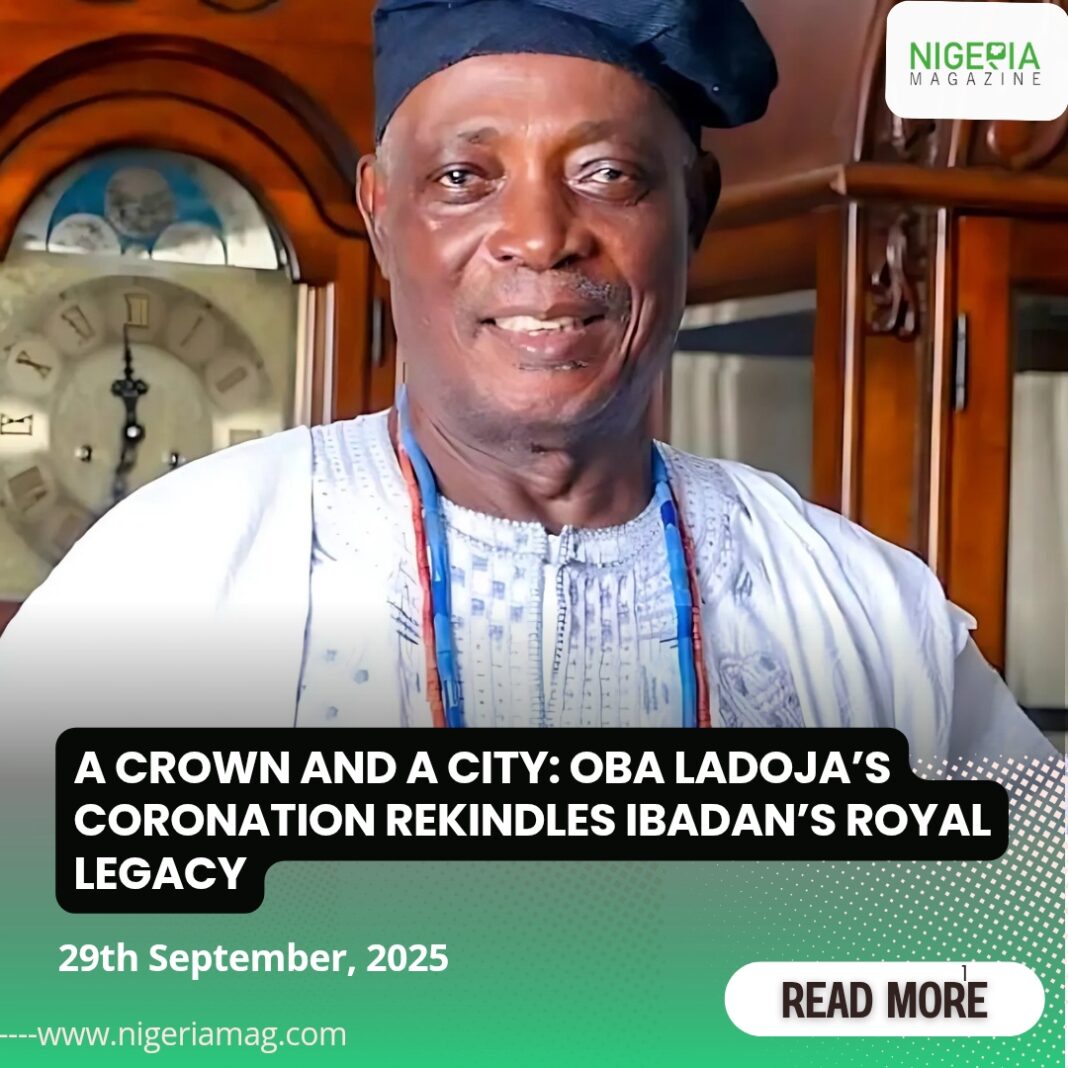Ibadan, Nigeria’s largest indigenous city, pulsed with colour, drumming and anticipation as it welcomed a new chapter in its royal history. The coronation of the 44th Olubadan, Oba Rashidi Adewolu Ladoja, was not just an event—it was a cultural homecoming layered with history, identity and pride.
In the days leading up to the ceremony, the city’s ancient heartbeat seemed to quicken. Streets were adorned, families prepared attire passed down through generations, and conversations across markets and neighbourhoods circled around one name: Ladoja.
When the day finally arrived, Mapo Hall—standing tall over the city’s undulating landscape—became the heart of the celebration. The historic venue drew an extraordinary mix of people: political heavyweights, traditional rulers from across Yorubaland, community chiefs, cultural custodians and everyday residents united by a shared sense of belonging. Visitors arrived from different corners of the country and beyond, adding to the city’s vibrant swell.
But beyond the spectacle of beaded crowns, royal processions and ceremonial rites, the moment carried deeper meaning. The coronation reaffirmed Ibadan’s centuries-old succession tradition—linear, respected and largely uncontested—an institution that has continued to command admiration for its clarity and order.
For many, Oba Ladoja’s ascension was more than a leadership transition; it was a reminder of the city’s resilience and the relevance of Yoruba monarchy in a rapidly changing Nigeria. Elders spoke of heritage. Young people captured history through camera lenses and social media posts. Families saw the event as a bridge between the past and the possibilities of the future.
In a world where tradition often competes with modernity, Ibadan stood tall and rooted—honouring its past while embracing a new custodian of its cultural soul.


